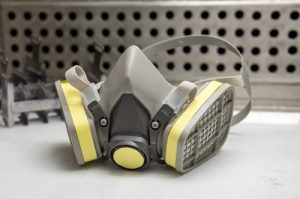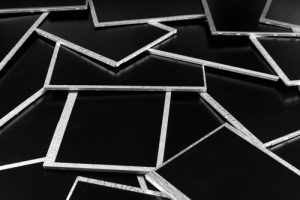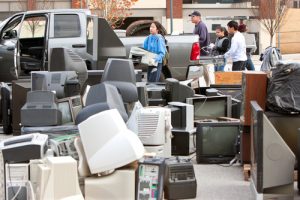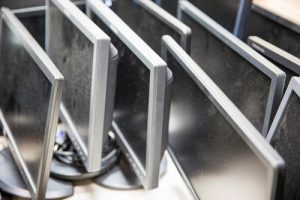 A study takes a wide-ranging look at the health and environmental impacts of improperly managed scrap electronics, and it suggests ways the whole value chain can work to solve the problems.
A study takes a wide-ranging look at the health and environmental impacts of improperly managed scrap electronics, and it suggests ways the whole value chain can work to solve the problems.

 A study takes a wide-ranging look at the health and environmental impacts of improperly managed scrap electronics, and it suggests ways the whole value chain can work to solve the problems.
A study takes a wide-ranging look at the health and environmental impacts of improperly managed scrap electronics, and it suggests ways the whole value chain can work to solve the problems.
 A group of Taiwanese developers has unveiled a recycling system to recover glass, indium and liquid crystal from LCD screens.
A group of Taiwanese developers has unveiled a recycling system to recover glass, indium and liquid crystal from LCD screens.
 Nearly 300 IT product refurbishing experts convened in New Orleans this week to consider industry trends and to address barriers to growth. The event was the 14th annual Electronics Reuse Conference, now operated by the consulting firm E-Reuse Services.
Nearly 300 IT product refurbishing experts convened in New Orleans this week to consider industry trends and to address barriers to growth. The event was the 14th annual Electronics Reuse Conference, now operated by the consulting firm E-Reuse Services.

Lawmakers hear testimony from Ned Eldridge of eLoop (left), Michele Nestor of Nestor Resources and Bob Bylone of the Pennsylvania Recycling Markets Center.
Manufacturers say proposed changes to Pennsylvania’s e-scrap program would make it the worst in the country from an OEM perspective. Proponents, however, note the bill fixes dire problems that have led to rampant CRT dumping statewide.
 Regulators say 1.6 million pounds of computers and monitors were recycled through the Oklahoma state program last year, the lowest weight in six years.
Regulators say 1.6 million pounds of computers and monitors were recycled through the Oklahoma state program last year, the lowest weight in six years.
 Rhode Island’s e-scrap law received some updates this month, requiring certain manufacturers to join the state-run collection program while allowing more flexibility for OEMs running independent plans.
Rhode Island’s e-scrap law received some updates this month, requiring certain manufacturers to join the state-run collection program while allowing more flexibility for OEMs running independent plans.
 A confluence of factors has led logistics experts to predict that American firms, including those in the recycling industry, will experience higher over-the-road shipping costs in the next six months.
A confluence of factors has led logistics experts to predict that American firms, including those in the recycling industry, will experience higher over-the-road shipping costs in the next six months.

Regulators in California are studying a number of legislative fixes to the nation’s longest-running e-scrap program, including expanding the existing consumer-funded model or going with a more commonly used system financed by OEMs.
 Seattle-based processor Total Reclaim has been fined by state regulators, who allege it speculatively accumulated mercury-bearing flat-panel TVs and monitors.
Seattle-based processor Total Reclaim has been fined by state regulators, who allege it speculatively accumulated mercury-bearing flat-panel TVs and monitors.
 Environmental advocacy group Greenpeace has scored a handful of the top consumer electronics manufacturers on the recyclability of their devices, among other criteria. Although some companies stood out as positive examples, the report found there is much room for improvement.
Environmental advocacy group Greenpeace has scored a handful of the top consumer electronics manufacturers on the recyclability of their devices, among other criteria. Although some companies stood out as positive examples, the report found there is much room for improvement.
